Author Archives: admin
December 16, 2020 by admin
This Hanukkah, Illuminating the Power of Feminists
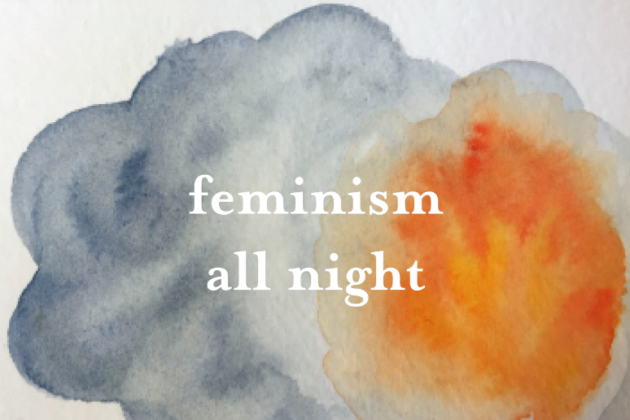
Four years ago, I sat in a communal Shavuot learning program. I recall thinking to myself, what is the Torah that the Jewish people need right now? The answer became crystal clear: it is feminism.
The next year, I decided to experiment and organize an event called Feminism All Night. The vision was inspired by the Jewish holiday of Shavuot and brought feminist thinkers together to teach and learn communally about feminism. The success was overwhelming, with over 100+ attendees and over 12 sessions that had us staying until 4 AM.
Since then, I have been cultivating this project by designing immersive feminist communal learning experiences centered on Jewish holidays. We hosted Feminism All Day for the holiday of Sukkot and expanded our events from Oakland to various cities, including Boston and Tel Aviv. Our community has grown to over 1500 people!
This year we decided to bring our vision of feminist Jewish learning to Chanukah. On the 7th Night of Chanukah on Rosh Chodesh Tevet is the traditional celebration of Chag haBanot (Eid al-Banat in Arabic), a North African Jewish Festival of the Daughters. The holiday elevates women’s power–the strength, wisdom and resilience of women throughout the ages. Women, young and elderly, would gather for a celebration together to delight in sweets, sing prayers, dance, and give gifts to each other, particularly gold coins and jewelry.
The holiday is associated with legendary and midrashic traditions or literary and historical traditions, about bold, wise, courageous and determined women who saved their people with their resourcefulness, wisdom, courageous hearts and heroism, and changed historical circumstances in antiquity.
Chag haBanot elevates the heroism and resourcefulness of brave, bold and wise women, such as Queen Esther, Judith daughter of Merari, or Hannah [sometimes Miriam], daughter of Matityahu. In times of danger to their people, they gathered courage, devotion, strength and resourcefulness, and acted in extraordinary ways that are recorded in the chronicles and told by the women on The Festival of the Daughters.
Feminism All Night is committed to creating space for feminist learning and particularly uplifting Mizrahi traditions in the Jewish world. Our programming has centered Mizrahi feminist educators from the beginning. We love celebrating the sacred traditions and teachings of Mizrahi communities and bringing them forth to the wider community.
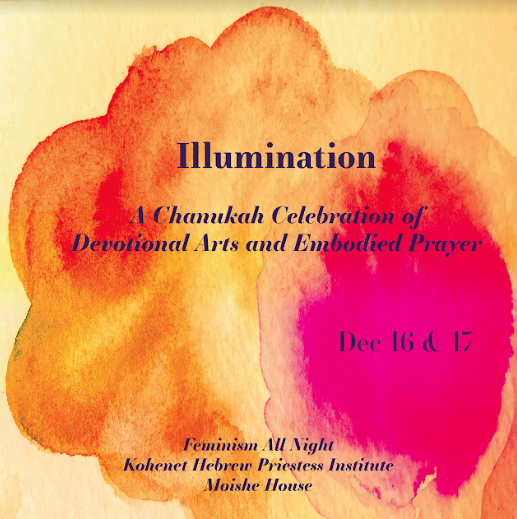
This year, on December 16th and 17th, we are hosting Illumination: A Chanukah Celebration of Devotional Arts and Embodied Prayer. Illumination is a collaboration between Hadar Cohen and Taya Mâ Shere. It is a partnership with Kohenet Hebrew Priestess Institute and is supported by Moishe House. The festival includes prayer, workshops and celebration. In honor of this celebration, we are featuring North African Jewish feminists–artists, teachers and spiritual leaders–on our Facebook and Instagram pages. Our programs are open to people of all genders and faiths and we invite you to join us–register here!
Some of our featured feminists include:
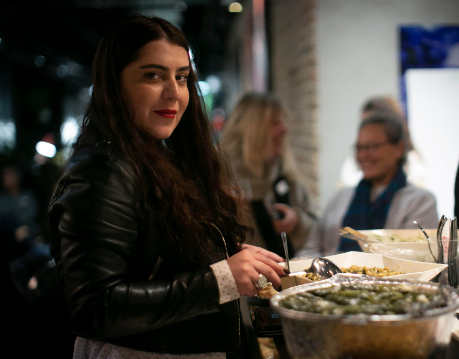
Sivan Tahel, a Moroccan activist and leader who was a lead organizer of Feminism All Night in Tel Aviv, January 2020, centered on Mizrahi Identity.
“Feminism is the mother of all struggles and everything connects to it. Feminism for me is solidarity, support networks of women, empowerment that is expressed in action, advancing other women and caring for their well-being, emotionally and financially. It is the ability to hear and listen to various strands of feminism, while respecting and embracing the diversity within the group of women. Feminism is the expansion of the feminist struggle with reference to power structures, ethnicity and status.”
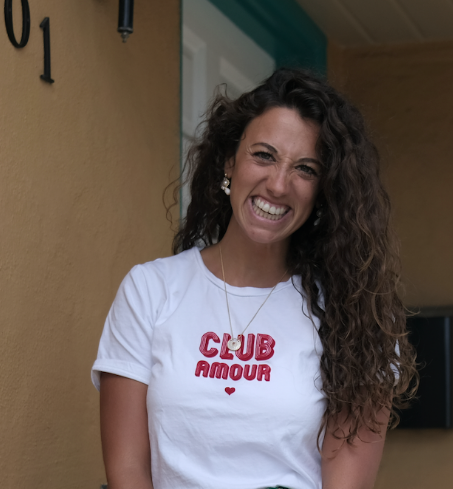
Nellie Alimi, a Tunisian and Algerian French artist who is working to preserve the North African rituals and traditions that she grew up with. Her family celebrated Eid Al Banat, and she will be sharing more about her familial lineage celebration at our Artistic Showcase.
“Feminism for me, is about elevating other women, showing a different type of leadership, embracing our own selves, not trying to fit into the white male model, speaking out truth, educating the world about strong women leaders and their challenges.”
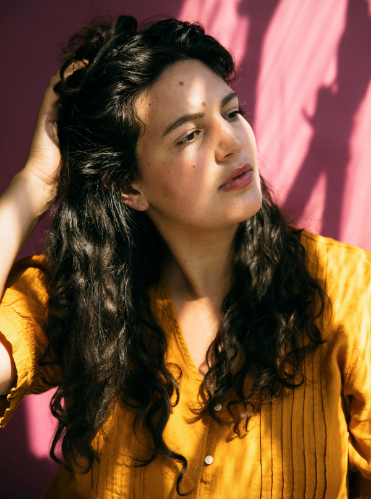
Daniela Labi, a Libyan feminist artist and community organizer. Daniela was one of the lead organizers for Feminism All Day 2019 in the Bay Area.
“To me, feminism means celebrating the true feminine power that lies within all of us. Feminism is the act of re-calibrating society so that we honor this power, lift it up, and use it to return to true alignment with g!d, the earth, and the universe. My mother was born and raised in Tripoli, Libya. She fled with her family in 1967, during the Six Day War, just months before she would’ve entered her last year of high school. For years, my ancestors lived in the deserts of Libya, and I feel the divine responsibility to capture their stories so that they are not lost to eurocentrism and whiteness.”
Hadar Cohen is a multimedia artist, educator and healer. She is the founder of Feminism All Night. To learn more about her work visit hadarcohen.me.
- No Comments
December 14, 2020 by admin
Let it Be Dark. Rest Your Eyes.
Welcome to Kislev, for people in the Northern Hemisphere, a time for dreaming in the dark. We have lived through a long, difficult year, a year of intense challenges and overwhelming losses. We are exhausted, and all too aware of how much remains to be done. It can be hard to put our attention on the wins.
- No Comments
December 7, 2020 by admin
Embracing a Different Hanukkah
By Susan Barocas
Just for the record, I like latkes. Really, I do. But Hanukkah is eight days, people. That’s eight dinners, not to mention breakfasts and lunches. Sometimes I think it’s another Hanukkah miracle that we can still fit into our pants after even a night or two of latkes! And with all of us staying home nearly all the time, we do not want to be sitting in stale latke air day after day.
This year, so much about our lives––including how we celebrate holidays––is different, which makes it a perfect time to move beyond potato latkes and embrace some new ideas for delicious Hanukkah eating.
To start with, I am a big believer that all kinds of food that use oil qualify as Hanukkah food, from roasted vegetables to your favorite salads with oil in the dressings. That means the mezze I wrote about in May make for good Hanukkah eating, too. Try the marinated feta from that post with roasted spiced olives (below) for munching during serious dreidel playing.
The feta speaks to the tradition of eating dairy during Hanukkah to honor beautiful and brave Judith, who saved Jewish lives from Assyrian invaders. Desired by the commanding general, she fed him lots of salty cheese the night before he was to attack her village. As a result, he drank too much and fell into a drunken sleep. Judith used his own sword to cut off his head, leading to the Assyrian retreat. Growing up, I never knew this story of Judith, a member of the Maccabea tribe, who should be spoken about along with all those men of Hanukkah.
When we think about other alternatives to latkes, ejjeh patties are full of protein and herbs (gluten-free, too, with chickpea flour). They need less time in oil to cook than potatoes, so soak up less of it. Traditionally served during Hanukkah in Syrian Jewish communities, ejjeh are so good that you find them year-round at street food stands throughout the Middle East, wrapped in flatbread or stuffed into a chunk of baguette or a pita with fresh cucumbers and tomatoes, pickles, pickled vegetables and lemony tahini sauce. I enjoy them as much for breakfast as for dinner! You can add a little shredded zucchini to make ejjeh kusa or partially-cooked potatoes that are grated for ejjeh batata
During Hanukkah, eating foods that use oil in various ways celebrates the miracle of the light created by the oil that lasted while the Israelites reclaimed and rededicated the desecrated Temple. Even though we won’t be gathering with family and friends this year for Hanukkah parties, we can still reclaim the deeper meaning and joy of the holiday.
Each night we light the chanukiah, we bring more and more light into the world on the darkest days of the year. Life being what it is right now, we need the special, remarkable light of Hanukkah more than ever. We can rededicate ourselves to the strength, endurance and survival symbolized by the light. We can create memorable celebrations in our homes, even if home means just one or two of us, by lighting lots of menorahs (make mini-muffins or cupcakes for edible menorahs) and staying safe while connecting virtually with those we love.
Here are the promised different Hanukkah dishes to match this year’s very different Hanukkah.
(All recipes by Susan Barocas.)
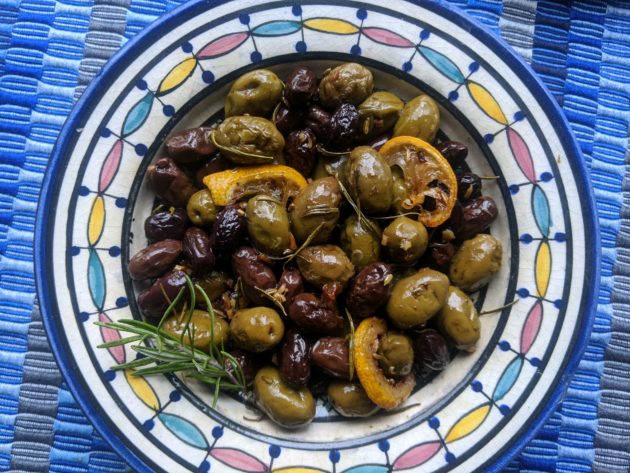
Roasted Spiced Olives
1/2 lemon
3 tablespoons olive oil
2 cloves garlic, minced (about 2 teaspoons)
1/4 teaspoon fennel seeds or cumin seeds
1/4 teaspoon Aleppo pepper or crushed red pepper (optional)
1/4 to 1/2 teaspoon salt, if needed
2-3 sprigs rosemary
3 cups olives, assorted colors and sizes, all with or without pits (about 1 pound)
Preheat oven to 400 degrees.
Wash the lemons very well, then dry it. Cut the lemon in half the long way Slice one of the halves into thin half-moons.
In a medium mixing bowl, stir together the olive oil, garlic, fennel or cumin seeds, pepper and salt, if using. Add the lemons, rosemary and olives and stir to coat everything evenly. Pour the mixture and all the dressing into a baking dish, preferably glass or ceramic, just large enough to hold the olive mixture in one layer. Roast the olives about 25 minutes, until bubbly and the olives start to wrinkle. Stir once halfway through cooking. When the rosemary is cool enough to handle, run your finger down the stems to remove the leaves and scatter over the olives, discarding the stems
Serve warm from the oven or at room temperature with a squeeze of lemon juice or sprinkle of salt, if desired. Cooked olives can be refrigerated up to two weeks. Bring to room temperature before serving or heat briefly in a 350-degree oven.
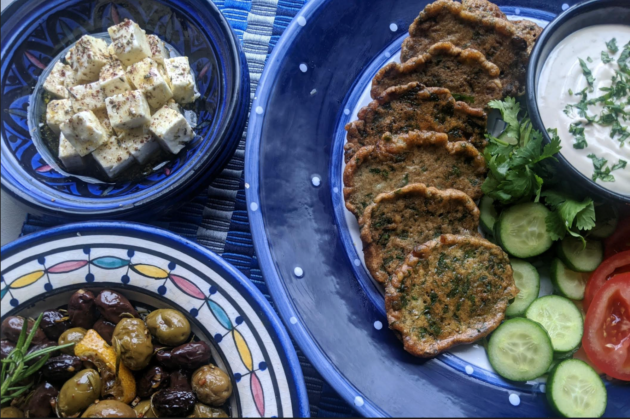
Ejjeh
(Edjeh, Edgeh)
Makes 8-12 patties
6-7 tablespoons scallions, green and white parts, from 5 or 6 scallions
4 tablespoons parsley
4 tablespoons mint, dill and/or cilantro
4 large eggs
1 teaspoon ground allspice
1 teaspoon salt
1/4 teaspoon ground black pepper
1/2 cup chickpea flour*
1/4-1/2 cup olive or good vegetable oil such as grapeseed, safflower or avocado
Options for serving—sliced cucumbers and tomatoes, pickles, pickled vegetables, romaine lettuce leaves; baguette, pita or flatbread
Clean and chop into small pieces the scallions, parsley and other herbs. (Like Persian Jewish food, the cuisine of Syria takes advantage of the abundance of herbs growing there.)
In a large bowl, beat the eggs until they start to get foamy. Add all the ingredients except the flour and olive oil, and combine well. Add the flour and mix until well blended.
Heat about 1/4 cup oil in a large skillet at medium temperature. The oil is ready when a drop of water or batter sizzles in it. For each ejjeh, drop a heaping tablespoon or more of batter into the hot oil, depending on the desired size, then gently even out with the back of the spoon. Fry on each side about 3 to 4 minutes until golden brown. Add more oil as needed. Drain on paper towels or brown paper, or on a rack placed over a baking sheet lined with paper towels or brown paper.
Serve warm or at room temperature, stuffed into chunks of baguette or a pita or wrapped in flatbread, or create a lettuce wrap. Add fresh cucumbers and tomatoes, pickles, pickled vegetables, and drizzle with lemony tahini sauce. The ejjeh can be frozen, separated by parchment or waxed paper and wrapped well. Reheat briefly in a dry pan with a lid or in a 350-degree oven.
*Chickpea flour can sometimes be hard to find, in which case substitute almond flour or all-purpose flour. Not traditional, but still good.
You can make your own flatbread for the ejjeh, as we did in an earlier class. Recipes here.
Lemony Tahini Sauce
It’s so quick and easy to make this sauce that I almost always have some in my fridge to drizzle on vegetables, use as salad dressing and, of course, ejjeh or felafel or even latkes. Leave it thicker with less water to make a sandwich spread or tahini dip for fresh veggies, pita.
1/2 cup tahini (sesame paste)
1 medium or large clove garlic, grated or pressed
1/4 cup fresh lemon juice
1/2 teaspoon salt
5-6 tablespoons cold water
Stir together all the ingredients except the water in a bowl. The mixture will become stiff. Starting with 4 tablespoons, add just enough cold water until the sauce is still thick, but smooth and pourable. If it feels too thin, add a little more tahini. The sauce will keep in the refrigerator up to a week. Stir and thin with a little cold water to reconstitute consistency if necessary.
MARINATED FETA
8 to 10 ounces feta
1 to 2 cloves garlic, sliced thin
1 to 2 tablespoons za’atar
1 tablespoon lemon zest
Olive oil to fill container
Pat the feta dry. With a sharp, straight-edged knife, cut feta into bite-sized cubes. Put a couple garlic pieces, some za’atar and zest in the bottom of a jar or glass container that can hold all the feta. Put about 1/3 to 1/2 of the feta pieces in the container, depending on how deep it is. Add more garlic and za’atar. Repeat once or twice more until As you go, add slices of garlic all around the feta and sprinkle za’atar and lemon zest, saving some for the top and down sides. Fill the container or jar with olive oil, covering all the feta with extra oil on top. Close and refrigerate for at least a day or two. Remove the jar from the fridge before serving so any solidified oil can liquify. Keeps for a few weeks in the refrigerator.
This same technique is a great way to marinate olives, too. As you use the feta or olives, add the oil marinade to salad dressings or drizzle over cooked vegetables, fish or pasta.
ZA’ATAR
(this appears also in the mezze blog post)
Every spice vendor in Israel and throughout the Middle East has their own particular za’atar mix that they become known for. You should do the same and make this mix totally to your taste. Find a blend you like and then use it on pita with olive oil, hummus, babaganoush, labneh, feta, fish, chicken, in salad dressings…you get the idea! I add only a little salt and no cumin or coriander to the mix, preferring to control those ingredients for each recipe using za’atar. This recipe is for the mix I usually––though not always––use.
1 tablespoon dried thyme
2 tablespoons dried marjoram
2 tablespoon dried oregano
2 tablespoons sumac
2 tablespoons sesame seeds, toasted if preferred
½ teaspoon salt
Optional:
1 tablespoon ground cumin
1 tablespoon ground coriander
½ teaspoon Aleppo pepper, more or less depending on the heat desired
Mix together well. Adjust for personal taste. Store in a jar or glass container tightly covered. When you use the za’atar, you can crumble it a bit by hand to release more flavor and aroma.
HAPPY HANUKKAH!
- No Comments
December 4, 2020 by admin
Shlomit Bukaya Takes on Racism in Israel

It’s market day in Ramla, a small city about 12 miles south of Tel Aviv, and while vendors hawk their wares to a bustling crowd of shoppers from diverse ethnic backgrounds, Shlomit Bukaya, Executive Director of the Association of Ethiopian Jews (AEJ), ponders the future for Israelis of Ethiopian descent.
“In some ways, there has been progress for our 151,000-member strong community,” the 35-year old lawyer explained in an interview in her office. “But a developed country like Israel should know how to stop discrimination.”
(more…)- No Comments
October 30, 2020 by admin
Does Your Heart Need Healing?
My recent photography is about transforming objects and things in nature often overlooked. The Healing Heart poster came into being while looking at a medical model of a human heart. I saw two “hidden” entities hugging in a loving gesture of self-compassion, which expresses my coping with loss in my life.
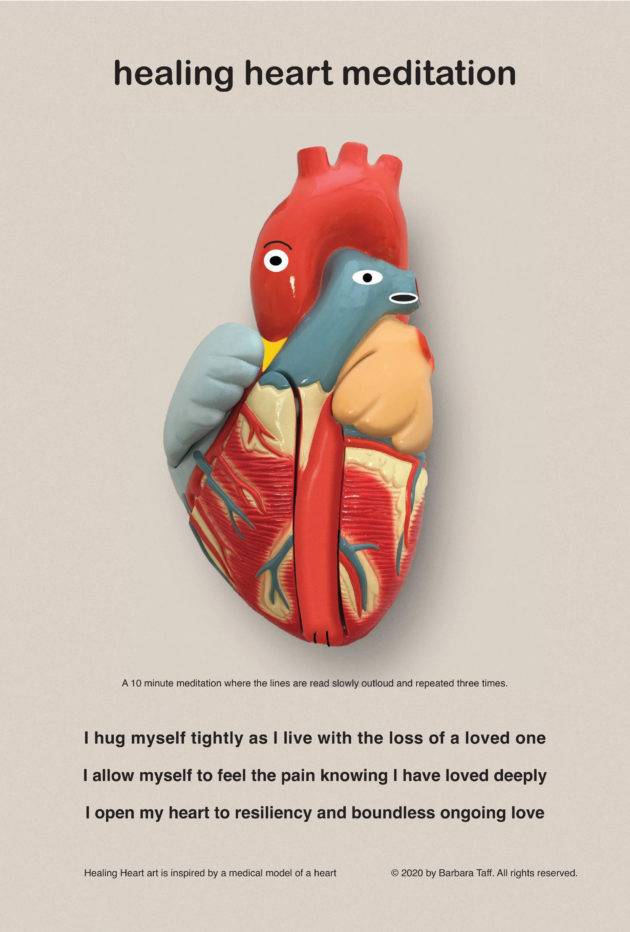
Barbara Taff is a multidisciplinary conceptual artist who brings a sense of timelessness to her photography sculptures, cartoons and visual designs. An award-winning graphic designer and educator, Taff is author, illustrator and designer of the children’s book, The Best Colors.
- No Comments
October 8, 2020 by admin
Clamor in the Desert: A Shelter for Anyone Who Feels Forlorn
We are living in uncertain times. In Argentina, my home, the flights are almost totally suspended and the feeling of confinement and distance becomes more evident.
I am an artist born in this country to Auschwitz survivors. Their story of exile and loss of their homeland, their language, their culture, marked my life and of course my art. I always felt some responsibility to try to renew and make their ancestors’ culture live in their new chosen land. That choice was obviously by default since they arrived in Argentina clandestinely as refugees.
Thus, borders, migrations and exiles, human rights, and the mother tongue have always been an essential core in my artistic concern, since I consider that art has the gift, but also the commitment to transmit and contribute to the formation of culture and popular thinking.
(more…)- No Comments
October 5, 2020 by admin
Stuffed with Abundance and Gratitude
What better way to celebrate the abundance of the harvest than by stuffing vegetables with an abundance of meat, rice, vegetables and fruits! No wonder stuffed foods are a traditional favorite for Sukkot, the festive fall holiday, for Jews from around the world.
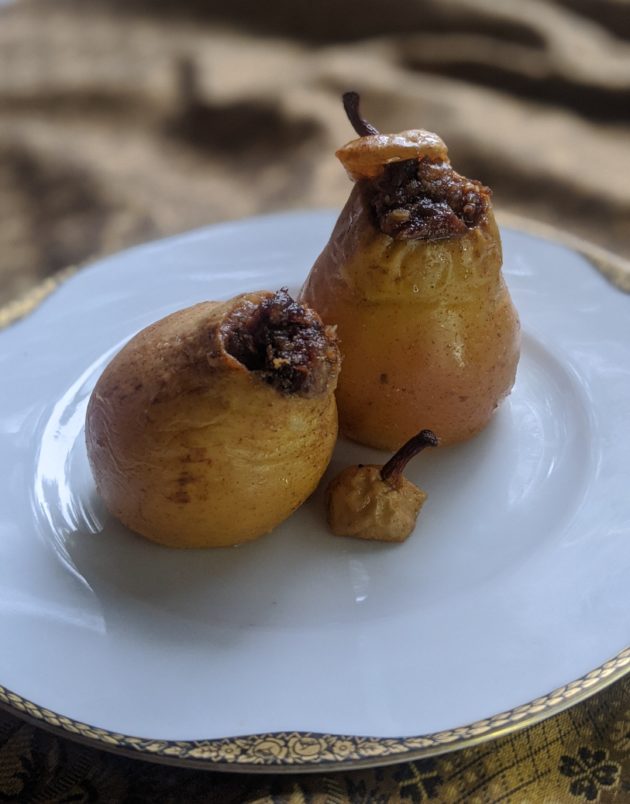
- No Comments
September 24, 2020 by admin
Why did(n’t) the Funeral Procession Cross the Road?
I brought my hand to my heart and took a deep breath. The voicemail was from David, at Levine’s Chapel in Brookline, MA, one of the most thoughtful funeral home directors I have the somewhat unusual privilege to know. As a rabbi, it is not unusual to get a call from a funeral home director; the rabbinate is a vocation where you make plans with friends with the caveat that you’ll show up as long as no one dies.
(more…)- No Comments
September 23, 2020 by admin
Reflecting on the Protests in Portland
Portland is one of the whitest cities in America, with an extremely racist history. So who would have ever thought we would be the city to watch during the modern-day civil rights movement?
The murder of George Floyd changed our country, and it changed Portland. So much so that this week, along with Seattle and NYC, we were designated an “Anarchist jurisdiction” by the Attorney General just this past Monday.
(more…)- No Comments
September 22, 2020 by admin
Black Jewish Women Artists You Should Know… Rebecca S’manga Frank
Art–whether it be dancing, painting, drawing, film–creates a space for self-examination, helping us to envision possible futures, and better versions of ourselves. And the Jewish month of Elul is traditionally an opportunity for introspection before the High Holidays of Rosh Hashanah and Yom Kippur.
Recognizing the power of art to be transformative, Lilith is highlighting Black Jewish women artists in this time leading up to and through Elul. On Lilith’s platforms you’ll have a chance to experience, share, and celebrate their work.
You can also participate by letting us know (at info@Lilith.org) Black Jewish women creators we should include!
—-
(more…)- No Comments
 Please wait...
Please wait...